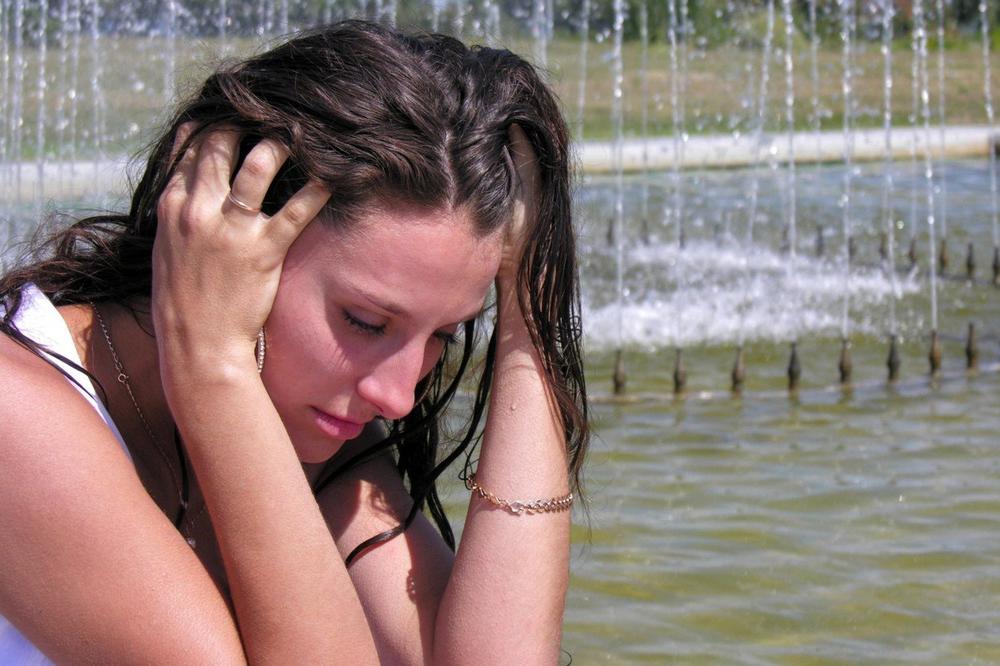Which people are most at risk? What heat can do to the body

Our body tends to maintain its internal temperature at 37,5 degrees Celsius, whether we are in a snowstorm or in the middle of a heat wave. This is the temperature at which our body gets used to functioning.
But as the mercury in the thermometer grows, the body must work harder to keep its internal temperature from rising. And so it opens up more blood vessels near the skin to release heat into our environment and begins to sweat. As the sweat evaporates, it dramatically increases the heat released by the skin.
When does this start to be a problem?
This may sound simple, but it starts to put some effort on the body - and the higher the temperature, the more the body strains.
These open blood vessels lower blood pressure and force the heart to work harder and faster to keep the blood circulating throughout the body. This can cause mild symptoms such as itching from a heat-induced rash or swollen feet when blood vessels begin to loosen.
But if the blood pressure drops too low, then the organs do not get enough blood they need and the risk of heart attack is higher. At the same time, sweating leads to the loss of fluids and salts and, most importantly, the balance between them in the body changes. This in combination with low blood pressure can lead to heat exhaustion, and symptoms include dizziness, fainting, confusion, nausea, muscle cramps, headache, profuse sweating, and fatigue.
What should I do when I see someone exhausted from the heat?
If it can be cooled within half an hour, then the heat exhaustion is usually not severe.
Health services advise:
- Move it to a cool place.
- Place him in a supine position and raise his legs with a slight incline.
- Give him plenty of water to drink - both sports and rehydration drinks are acceptable.
- Cool his skin - spray or wipe it with a sponge with cold water and cool it with a fan. Ice bags around the armpits or neck are also good.
However, if he can not recover within 30 minutes, then a heat stroke follows. It is a medical emergency and an ambulance must be called.
People who have had a heat stroke may stop sweating even though it is still too hot, their temperature may exceed 40 degrees Celsius and they may have a stroke or lose consciousness.
Who is most at risk?
Old age or some long-term health conditions, such as heart disease, can prevent people from coping with the heat.
Diabetes, both type 1 and type 2, can cause the body to lose fluid faster, and some complications of the disease can alter blood vessels and the ability to sweat.
It is also very important to be able to recognize that you are too hot and then do something about it. That's something most of us take for granted. However, young children and infants and those with less mobility may be more at risk, and brain diseases such as dementia may prevent people from being aware of the heat or doing anything about it.
Do some drugs increase the risk?
Yes - but people should continue to take their medication normally and must put more effort into cooling down and hydrating.
Diuretics increase the amount of water the body excretes. They are widely used, including for heart problems. At high temperatures, they increase the risk of dehydration and imbalance of key minerals in the body.
Antihypertensives - which lower blood pressure - can, in combination with blood vessels that dilate to cope with the heat, cause dangerous drops in blood pressure.
Some medications for epilepsy and Parkinson's disease can stop sweating and make it harder for the body to cool down.
And other drugs such as lithium or statins can become more concentrated and more problematic in the blood if excessive fluid loss occurs.
Does heat kill?
Yes, most deaths are caused by heart attacks and strokes caused by the effort to maintain a stable body temperature.
A higher mortality rate occurs when the mercury in the thermometer exceeds the division of 25-26 degrees Celsius.
However, evidence suggests that high temperatures cause more deaths in the spring or early summer than at the "peak of summer".
This may be because we are beginning to change our daily behavior as the summer progresses and we become more accustomed to fighting the heat.


